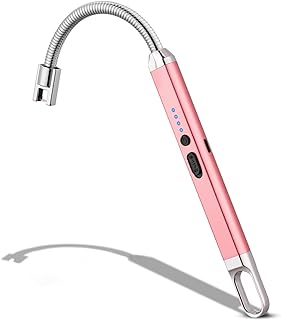Lighter 101: Everything You Need to Know About These Fiery Tools
Lighters, those small but mighty tools that ignite our flames, are essential for countless tasks. From lighting a candle to starting a campfire, understanding the different types and their nuances can elevate your experience. Here's a comprehensive guide to lighters, diving into their history, types, and proper use:
A Brief History of Lighters
The first recorded lighters were rudimentary devices used in ancient China. However, the modern lighter as we know it emerged in the 19th century.
* 1823: Johann Wolfgang D?bereiner invents the D?bereiner's lamp, a chemical lighter that uses hydrogen and platinum to produce a flame.
* 1892: Carl Auer von Welsbach develops the flint and steel lighter, paving the way for modern lighters.
* 1910s: The first pocket lighters, fueled by naphtha, become popular.
* 1930s: The Zippo lighter is introduced, becoming an iconic and durable design.
* 1970s: Butane lighters gain traction due to their convenience and efficiency.
Types of Lighters
Lighters come in a wide variety, each with its strengths and weaknesses:
* Bic lighters: Cheap, disposable lighters using butane fuel. Ideal for quick tasks but lack durability and refillability.
* Zippo lighters: Durable, windproof lighters using lighter fluid. Iconic design but require refilling and wick replacement.
* Butane lighters: Refillable lighters using butane gas. Versatile, adjustable flame, and good for extended use.
* Torch lighters: Powerful butane lighters with focused flames. Great for heavy-duty tasks like welding or soldering.
* Electric lighters: Rechargeable lighters using a battery to generate heat. Safe, environmentally friendly, and ideal for delicate tasks.
* Plasma lighters: Use an electric arc to generate heat. Stylish, eco-friendly, and windproof but can be expensive.
Using Lighters Safely
Lighters are powerful tools that require responsible use:
* Keep lighters out of reach of children: Store them in a secure place.
* Never leave a lit lighter unattended: This can lead to fires.
* Use lighters in a well-ventilated area: Avoid enclosed spaces to prevent buildup of fumes.
* Dispose of lighters properly: Don't throw them in the trash, as they can pose a fire hazard.
* Be aware of your surroundings: Don't use lighters near flammable materials.
Choosing the Right Lighter
The best lighter for you depends on your needs and preferences:
* For everyday use: Bic lighters are convenient and affordable, while butane lighters offer refillability and versatility.
* For outdoor activities: Windproof lighters like Zippos or butane lighters with adjustable flames are best.
* For specific tasks: Torch lighters excel for heavy-duty tasks, while electric or plasma lighters are perfect for delicate work.
Caring for Your Lighter
Proper care extends the lifespan of your lighter:
* Refill regularly: Check the fuel level and refill when needed.
* Clean the lighter: Dust and debris can obstruct the mechanism.
* Replace parts: Worn-out flints, wicks, and seals need replacement.
* Store properly: Keep lighters in a dry and cool place.
Conclusion
Lighters are everyday tools that add convenience and versatility to various tasks. By understanding their types, functionalities, and safety precautions, you can utilize these fiery companions responsibly and enjoy their benefits for years to come.


